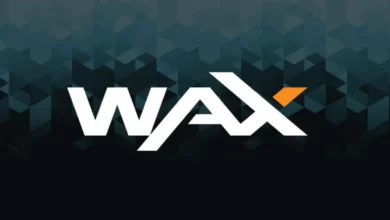Ontology and its Trust Framework

Ontology is the study of the nature of existence and reality, focusing on the classification and organization of knowledge. It is a fundamental concept in computer science and artificial intelligence, as it is used to develop knowledge-based systems, databases, and semantic web applications. Ontology provides a formal representation of knowledge, enabling the computer to understand and process data more efficiently.
In the digital age, data is a valuable asset, and its management is critical for businesses and organizations. The use of Ontology in managing data has become increasingly important, as it enables the development of intelligent systems that can analyze and interpret complex information. However, as data becomes more valuable, the need for a Trust Framework to ensure the quality and security of the data becomes imperative.
Introduction
Ontology is the study of the nature of existence and reality, focusing on the classification and organization of knowledge. In the context of computer science and artificial intelligence, ontology refers to the representation of knowledge in a structured format, enabling intelligent systems to analyze and interpret complex information.
One of the key challenges in ontology is ensuring the quality and trustworthiness of the data. This is where a Trust Framework comes into play. A Trust Framework is a set of standards and protocols that enable entities to establish trust relationships, ensuring the integrity, confidentiality, and availability of information.
Ontology and Trust Framework
A Trust Framework is a set of standards and protocols that enable entities to establish trust relationships, ensuring the integrity, confidentiality, and availability of information. In the context of Ontology, a Trust Framework provides a mechanism to establish trust relationships between entities that use Ontology for managing their data.
The importance of a Trust Framework for Ontology lies in the fact that Ontology is often used to model complex domains, where data comes from multiple sources and needs to be integrated. In such scenarios, the use of a Trust Framework can ensure that the data is of high quality and can be trusted for decision-making.
Types of Trust Framework
There are different types of Trust Frameworks that can be used in the context of Ontology, depending on the nature of the data and the entities involved.
Technical Trust Framework
A Technical Trust Framework defines the technical requirements for establishing trust relationships, such as encryption, digital signatures, and access control. It ensures that data is protected from unauthorized access and that the integrity and confidentiality of the data are maintained.
Legal Trust Framework
A Legal Trust Framework defines the legal requirements for establishing trust relationships, such as compliance with data protection regulations and contractual obligations. It ensures that data is processed in accordance with legal requirements and that the rights of individuals are protected.
Social Trust Framework
A Social Trust Framework defines the social requirements for establishing trust relationships, such as reputation and trustworthiness. It ensures that data is shared only with trusted entities and that the entities involved have a positive reputation.
How Trust Framework Affects Ontology
The use of a Trust Framework can have several benefits for Ontology, such as:
Enhances Data Quality
A Trust Framework ensures that data is of high quality and can be trusted for decision-making. It enables entities to validate the accuracy and completeness of the data, reducing the risk of errors and inconsistencies.
Improves Data Integration
Ontology is often used to model complex domains, where data comes from multiple sources and needs to be integrated. A Trust Framework can ensure that the data is of the same quality and format, making it easier to integrate and analyze.
Helps with Semantic Interoperability
Semantic interoperability is the ability of different systems to share and understand data.
A Trust Framework can enable semantic interoperability by providing a common language and format for representing data. It can also ensure that the data is consistent with industry standards and best practices, facilitating the exchange of data between different systems.
Challenges of Trust Framework in Ontology
While a Trust Framework can provide several benefits for Ontology, there are also several challenges that need to be addressed, such as:
Complexity
Ontology is often used to model complex domains, and the use of a Trust Framework can add an additional layer of complexity. It requires a significant investment in terms of time, resources, and expertise, which may not be feasible for all organizations.
Lack of Standardization
There is currently no standard Trust Framework for Ontology, and different organizations may have different requirements and expectations. This can lead to interoperability issues, as different Trust Frameworks may not be compatible with each other.
Privacy and Security Concerns
The use of a Trust Framework can raise privacy and security concerns, especially when sensitive data is involved. Organizations need to ensure that the Trust Framework they use complies with data protection regulations and provides adequate safeguards for sensitive data.



